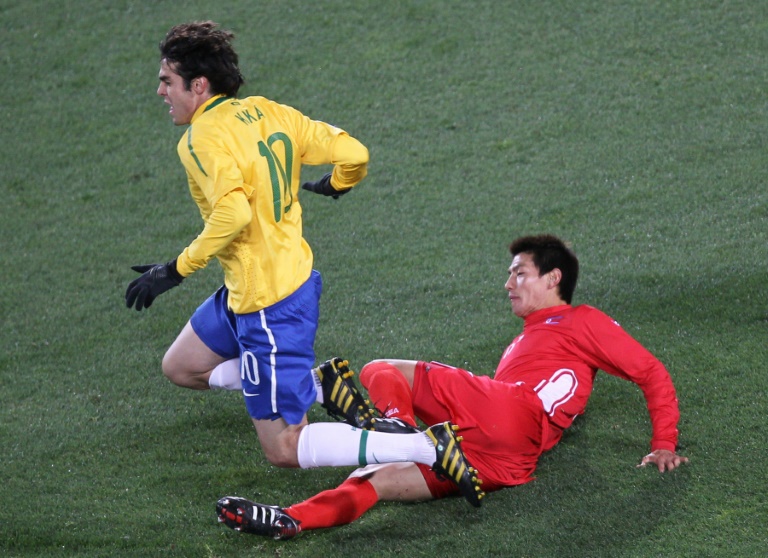Ahn Yong-hak was born and raised in Japan and plans to cheer on his former team North Korea when they clash in a World Cup qualifier in Tokyo on Thursday.
Ahn is one of the approximately 300,000 ethnic Koreans living in Japan who have faced years of discrimination in areas such as employment and social welfare.
He attended a pro-North Korea school in Japan and played 40 games in midfield for North Korea at the 2010 World Cup, playing against Cristiano Ronaldo, Kaka and Yaya Toure.
This week's qualifying round is a special occasion for some Korean residents in Japan, especially those cheering for the North Korean team in the stands, as it is an opportunity to assert their own identity.
“We played against Japan at Saitama Stadium in the 2006 World Cup qualifiers. They scored in stoppage time and we lost,” said Ahn, now 45 and retired as a player, before the start of the World Cup in Yokohama. He spoke to AFP at a pro-North Korean school. Thursday's game.
“But after the game, we shook hands and waved to the Japanese fans.
“It was a great match that surpassed the result. I hope it will be the same this time as well.”
The majority of Korean residents in Japan are descendants of civilians removed from their homes during Japan's brutal colonization of the Korean peninsula from 1910 until Tokyo's defeat in World War II in 1945. .
Some, like Ahn, a third-generation Korean resident in Japan, are receiving their education at schools with support from pro-North Korean organizations and funding from North Korea.
Japan and North Korea have no official relationship, but the Tokyo metropolitan government allows the school to operate, even though it does not provide subsidies to other schools.
~Gaining trust~
Ahn started his career in Japan's J.League, but said it was natural for him to represent North Korea.
“I was born and raised in Japan, so to be honest, I knew the names and faces of Japanese players better than the players from the Democratic People's Republic of Korea that I saw on TV,” he said, using North Korea's official name. He said.
“But I am Korean and my name is Ahn Yong-hak. I consider the Democratic People's Republic of Korea to be my national team, and I have always worked hard with that in mind.”
Ahn said she went to Pyongyang on a school trip as a child and that she and her classmates always received a warm welcome.
His varsity teammates weren't very open at first, he said, but “we became like family by the end.”
“Even though we live in different countries, we are all human beings, so we will treat each other honestly and communicate,” he added.
“I’m a soccer player, so I worked hard on the pitch to build trust.”
Ahn was part of the North Korean team that participated in the 2010 World Cup, the last time North Korea qualified for the World Cup.
The team also included several other Japanese-born Koreans, such as forward Jeong Tese, known as the “people's Rooney” after England striker Wayne Rooney.
– Pioneer –
Ahn said attendance at Korean schools in Japan has declined and there will likely be only one Japanese-born player on the North Korean team for this week's games.
Ahn runs soccer schools in Tokyo and Yokohama, and hopes to contribute to the development of a new generation of North Korean national team players.
“The number of children may be decreasing, but there are still people who dream of playing in the World Cup as a representative of the Democratic People's Republic of Korea,'' he said after his retirement. Ahn, who coached the Japanese-Korean team, said: Played in 2017.
Ahn said he tried to show Korean residents in Japan what was possible throughout his career, and in 2006 he became the first active North Korean player to play in South Korea's K League.
Although he had been warned that this might be difficult given that the two countries were and are effectively at war, the move ultimately succeeded.
He said soccer gave people who have faced discrimination for years in Japan a reason to be proud.
“I don't want my children to grow up thinking that being Korean is a negative thing,” he added.
“I want them to take advantage of that and realize that they can do anything, and show the next generation that they can too.”
amk/pst

